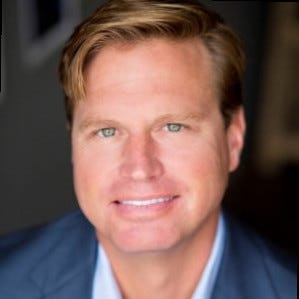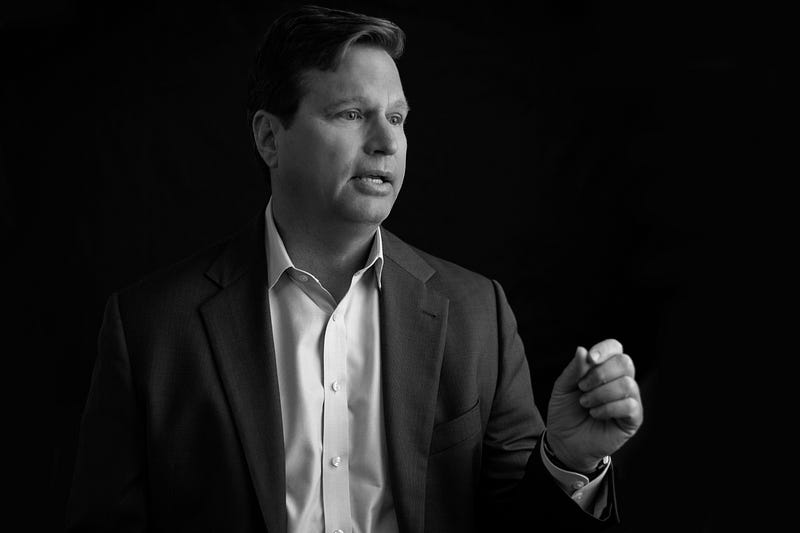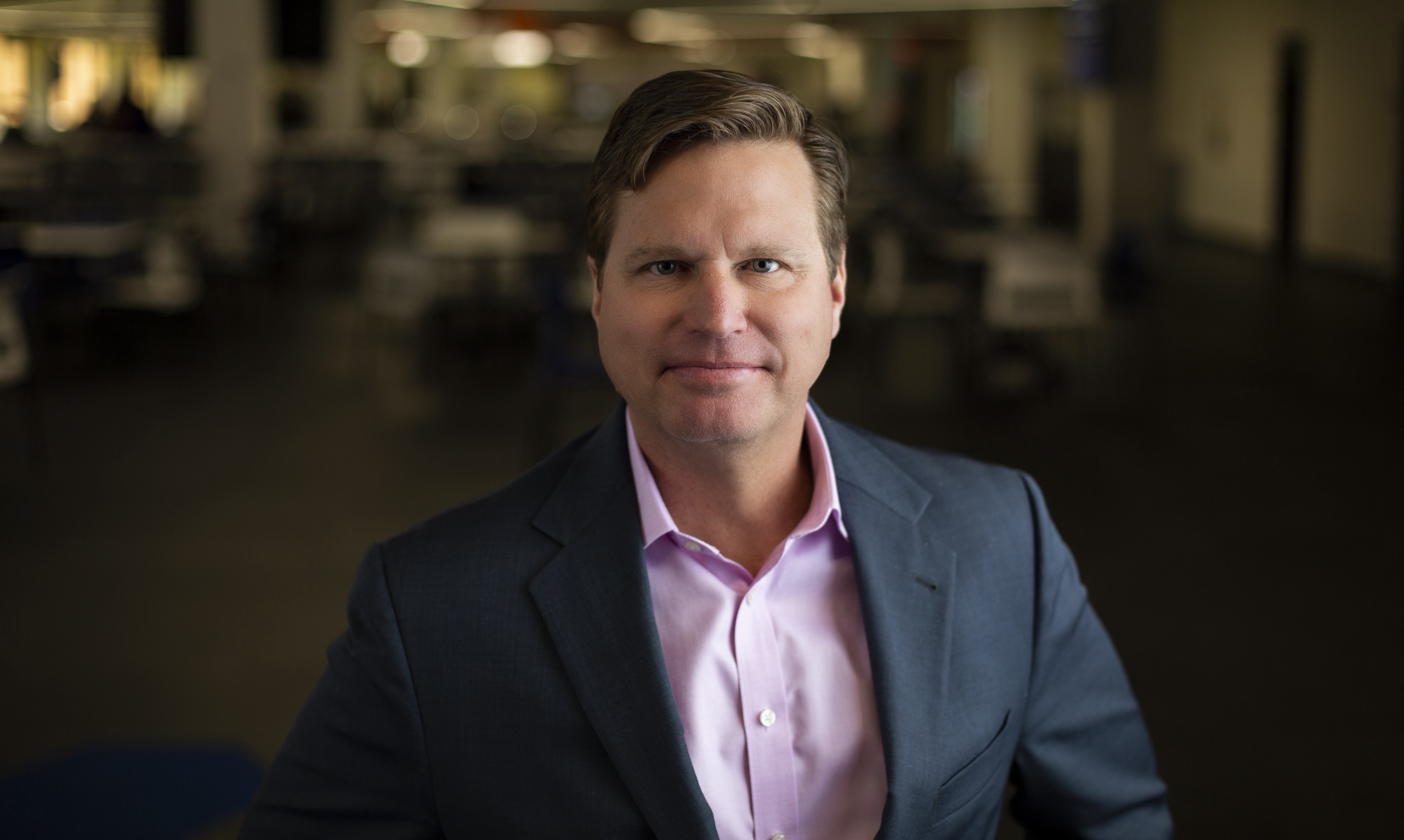The US healthcare system is broken, it is inverted. We take care of the sick in the most expensive settings and only hope they stay well. Most of us in this field realize that a holistic approach to wellness and special community programs will keep people out of the hospital, but it is not what we practice…
As a part of my interview series with leaders in healthcare, I had the pleasure to interview Cameron Thompson, Managing Director of Healthcare at Acxiom. Cameronhas healthcare service in his DNA. His father, grandfather and great grandfather were all lifelong medical practitioners. Thompson has developed and executed marketing strategies in the area of patient health for over 25 years. As Managing Director of Healthcare for Acxiom, he returns to the industry he led years ago and is responsible for advising clients on how to increase the power and effectiveness of their marketing investments. Prior to Acxiom, Thompson was Chief Revenue Officer for Spotright, which uses 60B social signals as proxy for intent behavior, and spent 2 years at Oracle Marketing Cloud running East Coast sales. Early in his career, Cameron pioneered the national pharmaceutical and healthcare practice for Peppers and Rogers Group, the One-to-One Management Consultants. He has advised clients such as Pfizer, Novartis, Biogen, Eli Lilly, Bayer, Roche, Amgen, Anthem and California Blue Cross/Blue Shield on customer development and lifetime value exchange. Cameron began his career working for provider hospital facilities where he led consumer marketing programs and formed his strong interest in customer relationship programs. He has spoken on the topics of managing patient lifetime value and physician needs clusters among other marketing and customer value chain topics. Cameron earned his bachelor’s degree in psychology from University of California, Berkeley and his MBA from the University of Phoenix. He, his wife and two children reside in Bucks County, PA.
Thank you so much for doing this with us! Can you tell us a story about what brought you to this specific career path?
My father was an internist and my mother was a gerontologist. I literally grew up in the hospital setting and ate lots of cafeteria food. My dad always said, “You can be whatever you want to be… you can be whatever doctor you want to be, that is.”
Can you share a story about the funniest mistake you made when you were first starting? Can you tell us what lesson you learned from that?
My career has evolved, so I have many mistakes to choose from. One story that comes to mind is when I worked in an inpatient psychiatric setting and mistook a patient for a psychiatrist and updated him briefly on the clinical status of another patient. As I soon realized my mistake, the patient thought perhaps I was impersonating an employee and was, in fact, another patient. Classic case of mistaken identity which not only offended the doctor, but it also bothered the patient. I learned that eagerness and wisdom are best used together.

What do you think makes your company stand out? Can you share a story?
Acxiom is at the forefront of patient communication and understanding. We help healthcare companies and pharma manufacturers drive more meaningful patient interactions. Today’s empowered digital consumers expect more now from their healthcare than in any time in history. We help communicate directly in these needs via the channels the patient prefers. Acxiom continues to propel the digital transformation of our industry. For instance, we have helped a large healthcare institution determine the volume and location of a much-needed and profitable service, so they can prepare institutional spending accordingly. Acxiom has also supported pharma companies, so they can speak more precisely to patients through digital engagement that drives medication adherence and persistence. Both examples provide value to the companies and increases patient health in the long-term. This is our preeminent goal.
What advice would you give to other healthcare leaders to help their team to thrive?
It certainly depends on the setting. I serve healthcare companies themselves and that is the perspective I have today. That said, we need to continue to bring in various alternative views, particularly in areas of innovation and technology. So much can be improved as we struggle to get out from under the crushing (and increasing) healthcare cost structures. We need to acknowledge this $3 trillion yearly expense is not sustainable.
Ok, thank you for that. Let’s jump to the main focus of our interview. According to this study cited by Newsweek, the US healthcare system is ranked as the worst among high income nations. This seems shocking. Can you share with us 3–5 reasons why you think the US is ranked so poorly?
1. Broadly, the US healthcare system is broken, it is inverted. We take care of the sick in the most expensive settings and only hope they stay well. Most of us in this field realize that a holistic approach to wellness and special community programs will keep people out of the hospital, but it is not what we practice
2. Many physicians are losing ground. They essentially have a smaller voice due to care restrictions by insurers. To survive, physicians are consolidating to large networks to defray costs
3. No tort reform. As long as it takes an OB-GYN three months of his or her working year to pay for malpractice insurance, the care side of healthcare will suffer
4. The high price of prescription drugs
You are a “healthcare insider”. If you had the power to make a change, can you share 5 changes that need to be made to improve the overall US healthcare system? Please share a story or example for each.
1. Improve patient protections and therefore reduce legal liability and cost burden to providers
2. Expand spending on wellness programs by payers and serve as the health advocate and the preemptive entity of trust
3. Develop state and local incentives for telehealth and foundational data exchange
4. Federal tax relief for a simplified system and remote healthcare to continue to address the negative social determinants of health
5. Cost containment at the service level including lowering prescription cost increases
Ok, it’s very nice to suggest changes, but what concrete steps would have to be done to actually manifest these changes? What can a) individuals, b) corporations, c) communities and d) leaders do to help?
· Individuals can vote with their wallet and at the polling booth
· Corporations can continue to find innovative ways to improve interoperability between systems and provide a path towards consumer-directed healthcare
· Communities can rally around change that creates a political will to advance innovation, particularly to the high-need communities
As a mental health professional, myself, I’m particularly interested in the interplay between the general healthcare system and the mental health system. Right now we have two parallel tracks mental/behavioral health and general health. What are your thoughts about this status quo? What would you suggest improving this?
You are absolutely correct. I was living in California when then Governor Reagan diminished the mental health system in the state. The effect was immediate and ultimately far-reaching. We began ignoring the downstream economic and health related costs associated with the mismanagement of mental disease. The social determinants of health already point to the most susceptible group in this category of need. Because we know people in poverty are more likely to receive inadequate care, we need to take care to where the problem resides. Again, in a holistic manner as I mentioned before, not simply waiting for the ER visit. Regardless of economic status, the opioid crisis, obesity and heart disease have a mental health component just as much as psychosis, anxiety or depression. As you said, it is a chronic mental health patient syndrome and we need country-wide recognition to begin to change.

How would you define an “excellent healthcare provider”?
A team of experts using the latest technology to support the patient, both in sickness and when well.
Can you please give us your favorite “Life Lesson Quote”? Can you share how that was relevant to you in your life?
“Keep the main thing the main thing.” This works in business and in your personal life.
Are you working on any exciting new projects now? How do you think that will help people?
We are proposing a healthcare solution which adopts radio-frequency identification (RFID) information and, through a Universal Patient Link (UPL), helps patients with intakes and hospital efficiency. One day, we envision this method being adopted by people using wearables, in conjunction with their wellness programs. The future of holistic wellness is coming, and we are a part of synthesizing this information in a HIPAA-compliant way.
What are your favorite books, podcasts, or resources that inspire you to be a better healthcare leader? Can you explain why you like them?
I still really love TED Talks and TEDMED conferences. I read Med Ad News regularly and try to stay on top of all integrated technology periodicals related to healthcare. The Great Risk Shift by Jacob Hacker unveils how the expense burden shift of public support has shifted to the individual across all sectors of public life. If you haven’t seen the controversial former Athena Health founder Jon Bush speak, look him up, simply brilliant!
You are a person of great influence. If you could inspire a movement that would bring the most amount of good to the most amount of people, what would that be? You never know what your idea can trigger. 🙂
Each individual can inspire a spark that can build a fire… Remain true to the passion you have within and never give up on it. As it relates to healthcare, my wish is for the global health services that are too often deprived in the third world would be improved through technology, care transparency, reduced violence and environmental health for a needy planet. Is that too grand?
How can our readers follow you on social media?
Follow me:
LinkedIn:www.linkedin.com/in/cameronthompson2
Facebook: https://www.facebook.com/acxiomUS/
Twitter: www.twitter.com/acxiom
Thank you so much for these insights! This was so inspiring!
About the Author:
Originally from Israel, Limor Weinstein has been anorexic and bulimic, a “nanny spy” to the rich and famous and a Commander in the Israeli Army. Her personal recovery from an eating disorder led her to commit herself to a life of helping others, and along the way she picked up two Master’s Degrees in Psychology from Columbia University and City College as well as a Post-Graduate Certificate in Eating Disorder Treatment from the Institute for Contemporary Psychotherapy.
Upon settling in New York, Limor quickly became known as the “go to” person for families struggling with mental health issues, in part because her openness about her own mental health challenges paved the way for open exchanges. She understood the difficulties many have in finding the right treatment, as well as the stigma that remains so prevalent towards those who are struggling with mental health issues. She realized that most families are quietly struggling with a problem they’re not comfortable talking about, and that discomfort makes it much less likely that they will get the help they need for their loved ones. She discovered that being open and honest about her own mental health challenges took the fear out of the conversations. Her mission became to research and guide those families to the highest-quality treatment available. Helping others became part of her DNA, as has a commitment to supporting and assisting organizations that perform research and treatment in the mental health arena.
After years of helping families by helping connect them to the right treatment and wellness services, Limor realized that the only way to ensure that they are receiving appropriate, coordinated and evidence-based care would be to stay in control of the entire treatment process. That realization led her to create Bespoke Wellness Partners, which employs over 100 of the best clinicians and wellness providers in New York and provides confidential treatment and wellness services throughout the city. Bespoke has built its reputation on strong relationships, personalized, confidential service and a commitment to ensuring that all clients find the right treatment for their particular issues.
In addition to her role at Bespoke Wellness Partners, Limor is the Co-Chair of the Academy of Eating Disorders. She lives with her husband, three daughters and their dog Rex in Manhattan.
To sign up for our newsletter, or learn more about custom mental health, click here.


